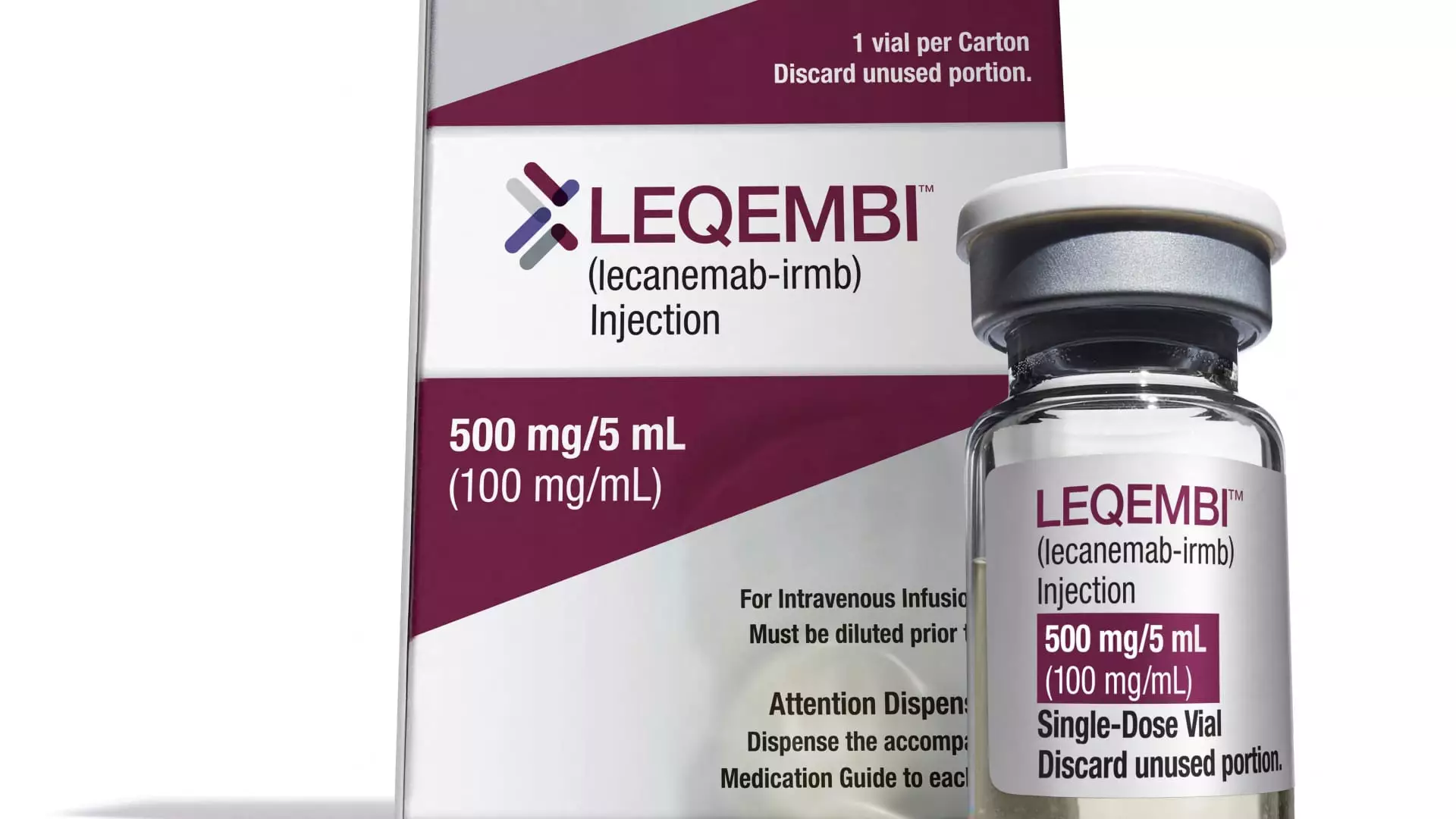Eisai, in collaboration with Biogen, has announced promising initial results from a clinical trial for an injectable version of the Alzheimer’s drug Leqembi. This development could potentially offer a more convenient option for administering the antibody treatment. Unlike the approved intravenous infusion method, the subcutaneous injection would allow patients or caregivers to administer the drug at home, eliminating the need to travel to a hospital or infusion center every two weeks.
The preliminary results were presented at the Clinical Trials on Alzheimer’s Disease conference in Boston. The extension trial aimed to test the safety and effects of subcutaneous Leqembi on amyloid, a protein that forms plaque and is associated with Alzheimer’s. The study compared the subcutaneous doses of Leqembi, administered once weekly, to the approved intravenous infusions given twice monthly.
The study revealed that the injectable form of Leqembi showed similar safety results and plaque reduction in the brain after six months when compared to the intravenous infusion method. Notably, the injectable version removed 14% more plaque than its approved counterpart. Additionally, blood concentration levels of the drug were 11% higher with the subcutaneous Leqembi.
While the results appear promising, there are concerns regarding the drug’s side effects. The removal of plaques from the brain can lead to brain swelling and bleeding, clinically known as amyloid-related imaging abnormalities (ARIA). The trial indicated that the injectable form still presented ARIA, with 17% of patients experiencing ARIA-E and 22% experiencing ARIA-H. In comparison, the intravenous infusion method had lower rates of both ARIA-E and ARIA-H, with 13% and 17% of patients, respectively.
Alzheimer’s disease affects a significant portion of the aging population, with nearly 17% of Americans aged 65 and older living with the condition. The number is projected to increase to almost 13 million by 2050. Association states that Alzheimer’s and other forms of dementia combined kill more people than breast and prostate cancer. The disease starts with mild memory loss and progressively impairs cognitive abilities and daily functioning.
Alzheimer’s research has proven to be notoriously challenging, with multiple drug candidates failing in clinical trials. The complexity and cost of research associated with the disease have hindered drug development. Additionally, there is an ongoing debate among scientists regarding the true cause of Alzheimer’s and the most effective targets for treatment.
Eisai and Biogen are planning to apply for U.S. approval of subcutaneous Leqembi by the end of March. If approved, this injectable version could revolutionize Alzheimer’s treatment by providing a more accessible and convenient method of administration. It is essential to continue monitoring the drug’s effectiveness and address the potential side effects to ensure the safety and well-being of patients. With further research and development, injectable Leqembi could play a significant role in slowing the progression of Alzheimer’s and improving the quality of life for those affected by the disease.


Leave a Reply